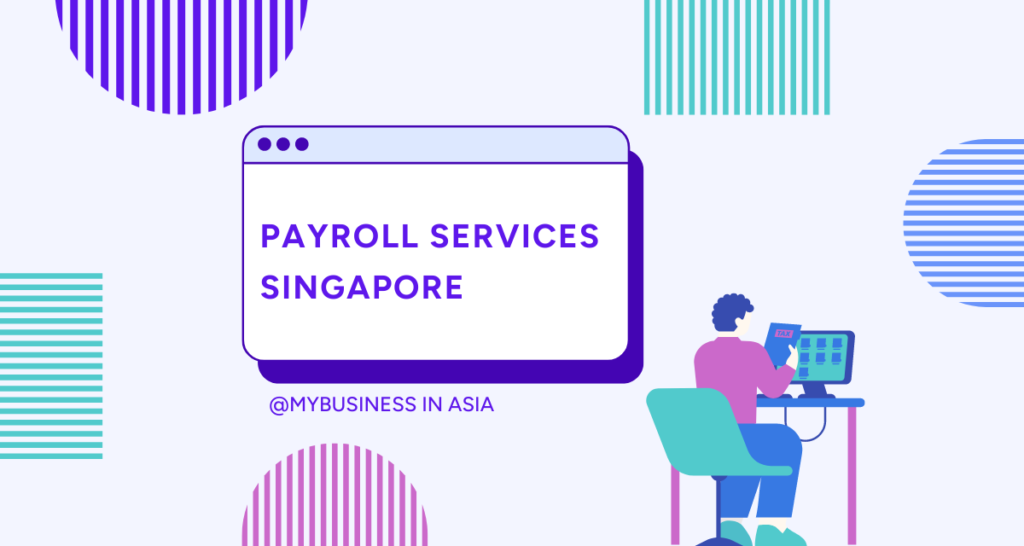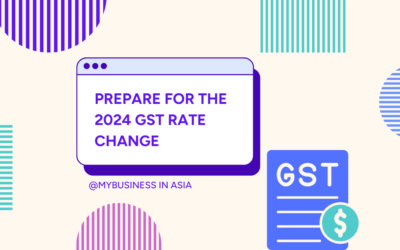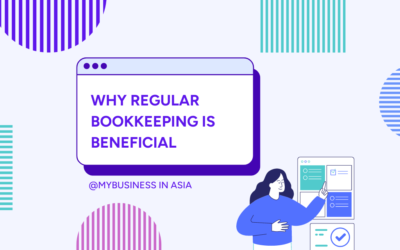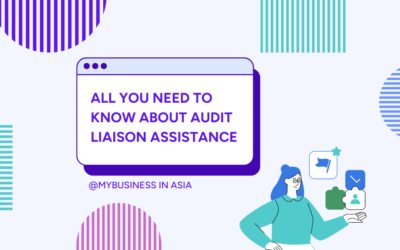
This article outlines why for many companies, it is simpler, easier and cheaper to outsource their payroll services in Singapore.
Why Singapore companies outsource their payroll?
Payroll is one of the most critical and time-consuming processes in any organization. It involves calculating employee salaries, processing taxes, generating paychecks, and ensuring compliance with labor laws and regulations.
The process can be complex, and companies must keep up with ever-changing regulations and tax laws to ensure they stay compliant. For many companies, outsourcing the payroll cycle preparation is becoming an increasingly popular choice.
Most Singapore SMEs and Startups see massive benefits when choosing to outsource their payroll cycle to services in Singapore:
– Cost Savings of payroll services in Singapore
One of the primary benefits of outsourcing the payroll process is cost savings. Companies that outsource their payroll save money by not having to invest in expensive software or hardware, or hire and train in-house staff.
Outsourcing providers have economies of scale, which means they can provide services more efficiently and at a lower cost than most companies can internally. Additionally, outsourcing providers have a dedicated payroll team who are experts in their field, reducing the risk of payroll errors, which can be costly in terms of fines and penalties.
– Reduced Risk and Compliance
Outsourcing payroll services in Singapore to a trusted provider reduces the risk of payroll errors and ensures compliance with labor laws and regulations. This is because outsourcing providers like MBiA have a deep understanding of payroll regulations and tax laws, and they stay up-to-date with changes in legislation.

They can also provide guidance on best practices to ensure that a company is in compliance with all relevant laws and regulations. This reduces the risk of fines and penalties and helps companies avoid costly legal battles.
– Improved Productivity
Outsourcing payroll services in Singapore allows companies to focus on their core business activities, rather than spending time on administrative tasks such as payroll preparation. This frees up time and resources that can be invested in more strategic initiatives, leading to improved productivity and increased revenue.
By outsourcing payroll, companies can allocate their internal resources to areas that are more critical to the success of the business, such as sales and marketing, product development, and customer service.
– Improved Data Management
Outsourcing payroll can also improve data management, as outsourcing providers often use advanced technology to store and manage payroll data. This technology is secure, reliable, and efficient, and it can be accessed from anywhere in the world, making it easy for companies to manage their payroll from multiple locations.
Outsourcing providers also have strict data security protocols in place, reducing the risk of data breaches and ensuring that sensitive payroll information is protected.
– Improved Employee Satisfaction
Outsourcing payroll can also lead to improved employee satisfaction. When employees receive their paychecks on time, they are more likely to be satisfied with their jobs, which can lead to increased employee engagement and reduced turnover.
Additionally, outsourcing providers can provide employees with online portals that allow them to access their payroll information, including their pay stubs, tax forms, and other important information. This makes it easier for employees to manage their finances, which can lead to improved financial stability and reduced stress.
Thus companies in Singapore usually prefer to outsource their payroll services.
Singapore Payroll Services Regulations
In Singapore, the requirements for payroll services and the payment of salaries to employees are governed by the Ministry of Manpower (MOM) and the Inland Revenue Authority of Singapore (IRAS). It is also legal in Singapore to trust a filing agent company and outsource your payroll services.

The CPF contributions for employers
Employers in Singapore are required to register their employees with the Central Provident Fund (CPF) and make contributions on behalf of their employees, based on the employee’s age, nationality, and salary.
The employer contribution rate varies from 7.5% to 17% of the employee’s salary, depending on the age of the employee, their immigration status (foreigner with work visas are not subject to CPF contributions except for SDL) and the salary level. CPF contributions must be paid to the CPF board monthly, the usual deadline for payment of the CPF monthly calculation being the 14th of the following month.
Not all wages attract the same rate of contribution, with the CPF board distinguishing from Ordinary Wages or Additional Wages. Under the CPF Act “wages are defined as remuneration in money, including any bonus that is due or granted to a person in respect of his employment”.
Ordinary wages are those which are granted exclusively or wholly in respect of an employee’s employment during the month AND are payable by the 14th of the following month (for example, monthly salary).
Additional wages are all the wages that are not classified as ordinary wages (For example, annual performance bonus).
While Ordinary wages for a calendar month are subject to a calculation ceiling – currently the maximum CPF will be calculated on SGD 6,000 to SGD 8,000 (by 2024) of monthly salary – the Additional Wages ceiling is applied on a per employer per calendar year basis:
| $102,000* – Total Ordinary Wage subject to CPF for the year *Equivalent to 17 months x Ordinary Wage ceiling of $6000 |
Leaves and minimum wages requirements in Singapore
In addition to these mandatory contributions, in accordance to the Employment Act, companies must pay the salary of their employees at least once a month and within 7 days after the end of the salary period.
There are exceptions for overtime, resignation without notice and other situations. Singapore does not impose a minimum wage, which is subject to negotiation and agreement between the parties (employer or trade union).
Employers may choose to offer additional benefits to their employees, such as annual leave (annual leave entitlement depends on the number of years of service with a certain employer, with minimum being 7), bonus payments, and overtime pay.
Keeping accurate records of payslips
Employers are also responsible for keeping accurate records of their employees’ salaries and benefits, as well as for providing payslips to their employees. These records and payslips must be kept for a minimum of three years.
Employers who fail to comply with these requirements can face penalties, including fines and legal action.
What information should a payslip include?
According to the Singapore Employment Act, the principal labor law in Singapore, employers must issue itemized pay slips to all employees covered by such Act.
An itemized payslip should include:
- Full name of the employer
- Full name of the employee
- Date of payments
- Basic salary – For hourly, daily, or piece-rated workers, indicate all of the following: Basic rate of pay( e.g., SGD per hour) and the total number of hours, days or pieces produced
- Star and end date of the salary period
- Allowances paid for the salary period: All fixed allowances (e.g., transport) and all ad hoc allowances (e.g., one off uniform allowance)
- Any other additional payment for each salary period (e.g., bonuses, rest day pay, public holiday pay)
- Deductions made for each salary period (e.g., fixed deductions for CPF contributions, deductions for no-pay leave)
- Overtime hours worked
- Overtime pay (including the start and end if different from the salary period)
- Net salary paid in total
MyBusiness in Asia handles the payroll payments and services for companies Singapore. This way, MBiA makes sure that the CPF contributions, the salaries, the contributions, leaves, etc. are all compliant and accessible from both employees and employers.
MBiA’s services include the complete scope of administrative services to support your company: Accounting, Company secretary, Tax, Payroll and more!
Read our other articles
- Understand how the ONE Pass and how to apply for this special Pass in Singapore
- Apply for an EP in Singapore and understand the new COMPASS framework
- Learn everything about the Stamp Duty for shares and calculator in Singapore
- Making Sense of Dividends Taxation and Regulations in Singapore
Or click our banner to discuss with us on how we can fully support your business!



